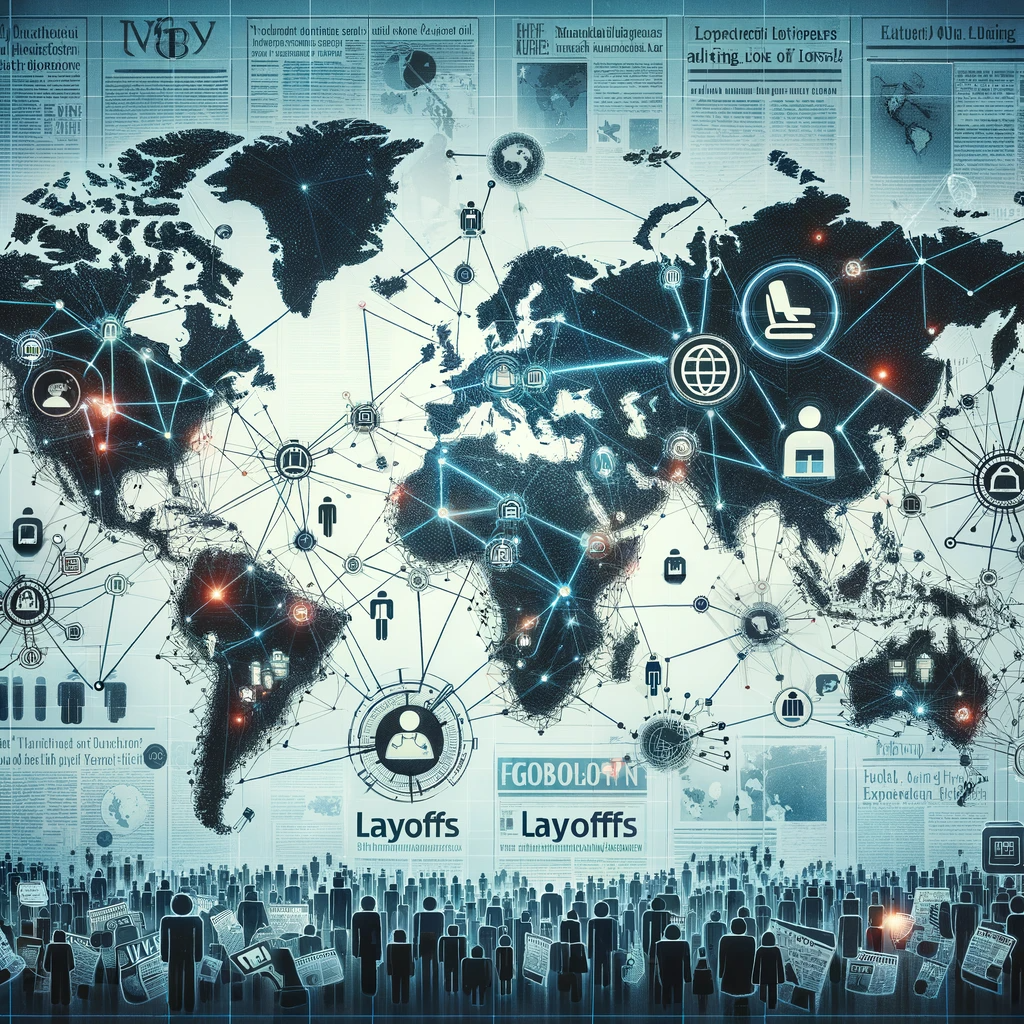In an era where “layoff news” frequently dominates the headlines, it’s crucial to understand the broader forces at play. Globalization, a defining feature of our times, has significantly influenced the nature, frequency, and impact of layoffs around the world. This article delves into the multifaceted relationship between globalization and layoffs, offering English writers and professionals insight into the changing landscape of employment and job security.

The Globalization Wave
Globalization refers to the increasing interconnectedness and interdependence of the world’s markets and businesses. This phenomenon has accelerated over the past few decades, driven by advancements in technology, communication, and transportation. While globalization has led to economic growth, innovation, and access to new markets, it has also introduced a new level of volatility and competition into the job market.
Layoffs in a Globalized Economy
The influence of globalization on layoffs can be observed in several key areas:
- Technological Advancements: The rapid pace of technological innovation, a hallmark of globalization, has led to significant disruptions in traditional employment sectors. Automation and artificial intelligence are replacing jobs faster than new ones can be created, leading to increased layoffs in industries from manufacturing to services.
- Offshoring and Outsourcing: Globalization has made it easier for companies to move operations to countries where labor is cheaper. This practice, while cost-effective for businesses, often results in significant job losses in their home countries, contributing to the rise in layoff news.
- Increased Competition: As global markets become more accessible, companies face heightened competition from abroad. This can lead to business closures or restructuring, often accompanied by layoffs, as companies strive to remain competitive.
- Economic Integration and Crises: The interconnectedness of global economies means that economic downturns can have worldwide repercussions, leading to job losses across different regions. The 2008 financial crisis is a prime example of how global economic shocks can lead to widespread layoffs.
The Changing Nature of Work
Globalization has not only affected the frequency and reasons for layoffs but has also changed the very nature of work:
- The Rise of the Gig Economy: With the global reach of digital platforms, more people are engaging in freelance, contract, or part-time work. While this offers flexibility, it also leads to a more precarious employment situation, where layoffs or the equivalent loss of work can be more common and less predictable.
- Skill Demands: The global economy demands a workforce with a new set of skills, often emphasizing technological proficiency, adaptability, and cultural awareness. Workers who cannot upskill or reskill may find themselves at a higher risk of layoffs.
- Remote Work: Globalization and technology have made remote work more feasible, allowing companies to hire globally. This can increase job opportunities in some areas but also means that local jobs may be outsourced to other countries, affecting job security.
Navigating Global Layoff Trends
Understanding the influence of globalization on layoffs is essential for workers, companies, and policymakers. It’s important to develop strategies to mitigate the negative impacts, such as investing in education and training, enhancing social safety nets, and fostering innovation to create new job opportunities.
Conclusion
The relationship between globalization and layoffs is complex and multifaceted, with significant implications for the workforce worldwide. As layoff news becomes increasingly common in the global narrative, it’s crucial to understand the underlying trends and prepare for the future of work in a globalized world.
